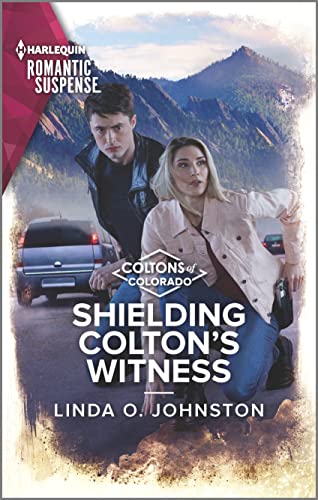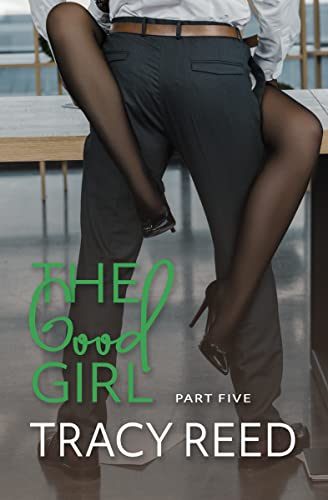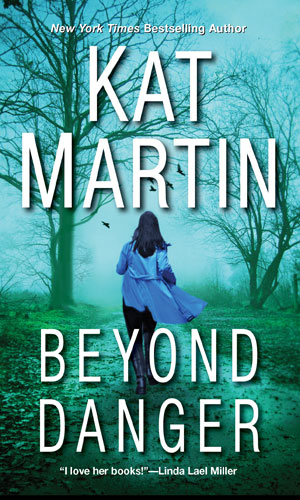Cut the Fluff
June 10, 2017 by Tari Jewett in category Charmed Writer by Tari Lynn Jewett tagged as cut the fluff, editing, write lean

Write short!
While I consider myself the Queen of Run-On Sentences, because I tend to write the way I talk…in run on sentences, I also tend to write very lean. I know, that may seem contradictory, but it’s true. While author friends are trying to bring their word counts down, cut description and wordiness, I find myself short of my word count goals by as much as 20,000 words. Not a small number. And, fiction editors and critique readers tell me that sometimes I need MORE description.
I’m sure this comes from my non-fiction background. When I wrote magazine articles, I generally had a word count goal around 2,000 words. While each word should count in everything you write, when you’re this limited, each counts double. Every editor I knew had the same mantra, ‘Cut the Fluff’.
This works for me. I want to get to the point. Don’t dilly dally and draw the story out with unnecessary details, or you’ll lose me. TELL ME WHAT HAPPENED.
So, I find myself reading for details that matter. Why did an author put that description there? Was it necessary? Does it give the reader a better picture? Does it move the story forward? Is it something I would normally just skim over as too much detail when I’m reading? Does it make the reader turn the page?
You would think that because of my preference for clean sparse words that I’d read (and write) primarily short stories and novellas, but it’s not true. I read long, I read short, I read flash. I love a good story told in how ever many words it needs.
So back to my problem. Writing too short. I’ve decided it’s not a serious problem. The solution is of course to read, read, read…one of my favorite things to do. And write the words that matter, that of course is the hard part. I’ll keep working on it.
And what about you? Do you find that you write short or long? Sparse or fluffy? War and Peace? Or Flash Fiction?
5 0 Read moreOn writing…Getting Started
April 19, 2017 by Jenny Jensen in category On writing . . . by Jenny Jensen tagged as editing, Jenny Jensen, writing, writing tips
Thank you Mr. Atkinson www.wronghands1.com
E.B. White (co-author of Elements of Style) said, “An editor is a person who knows more about writing than writers do but has escaped the terrible desire to write.”
OK, I’m certainly not E. B. White but I am an editor and I’ve worked with writers of every genre for 20 challenging and enriching years. There is nothing more exciting than helping a writer move through the process of writing. With no skin in the game I can be objective about where a story has taken a wrong turn, hear a particular turn of phrase or a plot point that doesn’t ring true, see inconsistencies in characterization — and spot the typos and those pesky homophones that get overlooked to the great peril of publication. I ask the hard questions, I offer possible solutions. It’s a grand give and take.
You’re a writer. Your head is filled with bits of story: the perfect setting — a women watches in her rear view mirror as the wedding cake dumped on the highway recedes in the distance. A character — Mistress Renfrew is overly tall and awkward and harbors a secret passion for Lord Dumfrey’s collection of assassin’s knives. Odd events — the deadly rivalry for Miss Abundance at the Apple Valley fairground, a lake in summer, tidbits of history, the perfect love triangle ripe for explosion. But where to start? How to corral all those creative bits into a cohesive whole?
One method: start with a simple premise.
Can you express the premise of your book succinctly? If you can write the essence of your story in as few as fifteen words you are on the road to writing a novel. What happens next? The plot will come from the premise.
It’s the way you dress up that simple premise, populate it and move it forward in narrative form that makes the story emerge. Starting from a succinct premise gives you a foundation on which to build a great story. Whether it’s the characters that drive the action or action that drives the characters, the premise provides the blueprint to keep the work moving forward.
The premise should be carved in stone, but only as long as it supports the creative effort. Stone can be reshaped; Michelangelo did it all the time and look at those results.
Whether you’re a novice or a seasoned writer I look forward to sharing On Writing again here at A Slice of Orange to explore methods, tools and tricks of writing that can help your story shine.
Jenny Jensen
Editor
www.e-bookeditor.com
How I Got Bit In The Butt And Survived!
February 20, 2017 by Meriam Wilhelm in category A Bit of Magic by Meriam Wilhelm, Writing, Writing: It's a Business tagged as editing, Meriam Wilhelm, self publishing, The Witches of New Moon Beach
This past year I authored my first fiction series, The Witches Of New Moon Beach. Like all new authors, I was totally excited to share what I had written and couldn’t wait to see my books posted up on Amazon. I had such a blast writing the series and had fallen in love with both my characters and my newly created beach city. I felt confident that my book covers were strong and that I had a solid plan for marketing each of the three (now four) books in the series.
Unfortunately for me, I let my excitement to share override my common sense. Sure, I had checked and rechecked for spelling errors and I even had three different people read my first book. I knew that there were individuals out there that you could pay to edit your books, check for typos, misused words or grammatical errors. But since I hadn’t yet made a dime I was resistant to spend money on the above mentioned even though in the back of my mind, I had a pressing fear that I might just have missed something. Grammar is just not my thing!
And so I proudly posted my first book for all to see and was immediately bitten in the butt by reviewers. Yes, there were a few kind comments, but then the bite came as I read “the grammatical errors were sometimes humorous” and “the book is filled with typos that simple editing could rectify.” One reader said I wrote like a teenager. Ouch!
How had this happened? I had done more than simple editing. What had I missed? I immediately took the book down and got some help. I repeatedly read the book back to front searching for errors. I tried out several editing software packages before purchasing Ginger and I ran book one past a high school English grammar teacher who I respected. I agonized before putting it back up. But the cleaning apparently worked since 73% of my reviews from then on were 4’s and 5’s and I’ve not been hit with negative remarks on spelling or typos again.
Let me say this clearly, I deserved to be bitten in the butt for posting a book with internal errors. I own this and boy did that hurt! I’m sure that I lost more than a few readers who were disappointed by my poor editing skills and either didn’t finish reading book one or never ventured toward purchasing books 2, 3 or 4. I’m saddened that they never got a chance to get to know my characters or to experience the magic within the pages.
Skip forward to my 5th book which will be out in early February 2017. I have spell checked it repeatedly, used my Ginger software for grammatical screening and had two different people read it for possible errors. However, this time, I’m also going to spend a few bucks to have a professional edit my book. Why? Because I can still remember how badly I felt when reading those negative reviews; reviews that I had earned. There is nothing worse than being disappointed in yourself.
I also learned something very important. It’s hard to see your own errors after you have lived with a story from birth to finish. I guess that I read right past mistakes more than once. My brain read the word site when I had actually spelled it sight. And semicolons took the place of far too many commas. I even failed to capitalize a word or two clearly by reading too quickly through the story.
In the end, I survived. Painful though it was, I learned a great deal from this experience. My counsel to you? Protect your butt – take your time, do your homework and then consider getting some professional help.
My best wishes to you as you successfully share your future stories with the world!
The one thing I know, after all my years as an elementary school principal, is that there is magic everywhere and in everyone. When I retired after 35 years in education, I longed to share all that I had learned and created several parenting books on topics from bullying to homework strategies. While I miss those enchanting moments with children and their parents, I always wanted to let my imagination run wild as I sought out my own magic and wrote about it. In short, I was lured into the world of fiction writing where I soon created my first series, The Witches of New Moon Beach. The first book, Morning Magic is currently FREE.
Inspiration isn’t hard to find as I have lived in Redondo Beach, California all my life and New Moon Beach might have more than a passing resemblance to my hometown. Every day I walk on the path that runs along the beach, sometimes with my sisters, but most often with my thoughts as I plot out my next book. I am long married and mom to three great grown kids. When I’m not writing or walking on the beach, you’ll find me sewing, reading or traveling and taking pictures.Feel free to check out my website: www.meriamwilhelm.com
A Day in the Life of a Writer via Twitter by Jina Bacarr
September 11, 2016 by Jina Bacarr in category Jina’s Book Chat tagged as Confessions of a Podcast Goddess, diary, editing, journal, Journaling, novel, Social Media, tweet, Twitter, writingA friend recently asked me if I journal.
Wow, a question that struck a cord in me. I haven’t kept a journal in years. I’ve got stacks of journals and diaries from high school, college, etc., but I spend so much writing stories, I stopped writing down my thoughts.
Then I realized I do journal in a way.
I tweet.
I don’t mean the promo tweets or the pretty graphics I love to put together for my books.
I mean the “here’s where I’m at in writing…” tweets.
So this month, I put together my favorite “journal tweets” for you. (I left out the hashtags.) It’s not easy putting your heart and soul into 140 characters, but hey, it’s convenient, like having a cell phone instead of a landline in our digital world.
It works when the power goes out…
———————
Jina’s tweets:
2 — Reading aloud edited version of your story is like sex: too slow and you’ll never get there; too fast and you won’t remember it.
3 — how much of a part do our memories play in writing our stories? performing in Italy inspired my Royal Magic story
8 —
I have a secret: I keep telling myself “just one more edit” of m/s — which have now turned into 6. Why is it so hard to let go?9 — this writer and her m/s have finally parted–re: earlier tweet today, I submitted my story tonight to the publisher!
===============
Website: www.jinabacarr.com
Blog: www.jinabacarr.wordpress.com
================
I’d love to hear from you. You can find me on social media:
www.facebook.com/JinaBacarr.author
2. Get organized
- When you sit down to do your revision, you must first get organized both physically and mentally.
Affiliate Links
A Slice of Orange is an affiliate with some of the booksellers listed on this website, including Barnes & Nobel, Books A Million, iBooks, Kobo, and Smashwords. This means A Slice of Orange may earn a small advertising fee from sales made through the links used on this website. There are reminders of these affiliate links on the pages for individual books.
Search A Slice of Orange
Find a Column
Archives
Featured Books
SHIELDING COLTON’S WITNESS
She has a witness to protect… And her own heart to defend!
More info →THE GOOD GIRL PART FIVE
I eloped with a man I thought I knew, but didn't.
More info →GIRLFRIENDS & SECRETS
Alexandra “Alex” Miller and her best friends are more like sisters. They live by the code that a good girlfriend will stick by you and be honest with you not matter what.
More info →BEYOND DANGER
New York Times bestselling author Kat Martin brings page-turning suspense to a tale of secrets and passions turned deadly . . .
More info →ILONA’S WOLF
Imagine a world filled with magic, a tormented knight, a damsel in distress, an evil sorcerer...
More info →Newsletter
Contributing Authors
Search A Slice of Orange
Find a Column
Archives
Authors in the Bookstore
- A. E. Decker
- A. J. Scudiere
- A.J. Sidransky
- Abby Collette
- Alanna Lucus
- Albert Marrin
- Alice Duncan
- Alina K. Field
- Alison Green Myers
- Andi Lawrencovna
- Andrew C Raiford
- Angela Pryce
- Aviva Vaughn
- Barbara Ankrum
- Bethlehem Writers Group, LLC
- Carol L. Wright
- Celeste Barclay
- Christina Alexandra
- Christopher D. Ochs
- Claire Davon
- Claire Naden
- Courtnee Turner Hoyle
- Courtney Annicchiarico
- D. Lieber
- Daniel V. Meier Jr.
- Debra Dixon
- Debra H. Goldstein
- Debra Holland
- Dee Ann Palmer
- Denise M. Colby
- Diane Benefiel
- Diane Sismour
- Dianna Sinovic
- DT Krippene
- E.B. Dawson
- Emilie Dallaire
- Emily Brightwell
- Emily PW Murphy
- Fae Rowen
- Faith L. Justice
- Frances Amati
- Geralyn Corcillo
- Glynnis Campbell
- Greg Jolley
- H. O. Charles
- Jaclyn Roché
- Jacqueline Diamond
- Janet Lynn and Will Zeilinger
- Jaya Mehta
- Jeannine Atkins
- Jeff Baird
- Jenna Barwin
- Jenne Kern
- Jennifer D. Bokal
- Jennifer Lyon
- Jerome W. McFadden
- Jill Piscitello
- Jina Bacarr
- Jo A. Hiestand
- Jodi Bogert
- Jolina Petersheim
- Jonathan Maberry
- Joy Allyson
- Judy Duarte
- Justin Murphy
- Justine Davis
- Kat Martin
- Kidd Wadsworth
- Kitty Bucholtz
- Kristy Tate
- Larry Deibert
- Larry Hamilton
- Laura Drake
- Laurie Stevens
- Leslie Knowles
- Li-Ying Lundquist
- Linda Carroll-Bradd
- Linda Lappin
- Linda McLaughlin
- Linda O. Johnston
- Lisa Preston
- Lolo Paige
- Loran Holt
- Lynette M. Burrows
- Lyssa Kay Adams
- Madeline Ash
- Margarita Engle
- Marguerite Quantaine
- Marianne H. Donley
- Mary Castillo
- Maureen Klovers
- Megan Haskell
- Melanie Waterbury
- Melisa Rivero
- Melissa Chambers
- Melodie Winawer
- Meriam Wilhelm
- Mikel J. Wilson
- Mindy Neff
- Monica McCabe
- Nancy Brashear
- Neetu Malik
- Nikki Prince
- Once Upon Anthologies
- Paula Gail Benson
- Penny Reid
- Peter Barbour
- Priscilla Oliveras
- R. H. Kohno
- Rachel Hailey
- Ralph Hieb
- Ramcy Diek
- Ransom Stephens
- Rebecca Forster
- Renae Wrich
- Roxy Matthews
- Ryder Hunte Clancy
- Sally Paradysz
- Sheila Colón-Bagley
- Simone de Muñoz
- Sophie Barnes
- Susan Kaye Quinn
- Susan Lynn Meyer
- Susan Squires
- T. D. Fox
- Tara C. Allred
- Tara Lain
- Tari Lynn Jewett
- Terri Osburn
- Tracy Reed
- Vera Jane Cook
- Vicki Crum
- Writing Something Romantic
Affiliate Links
A Slice of Orange is an affiliate with some of the booksellers listed on this website, including Barnes & Nobel, Books A Million, iBooks, Kobo, and Smashwords. This means A Slice of Orange may earn a small advertising fee from sales made through the links used on this website. There are reminders of these affiliate links on the pages for individual books.
















































